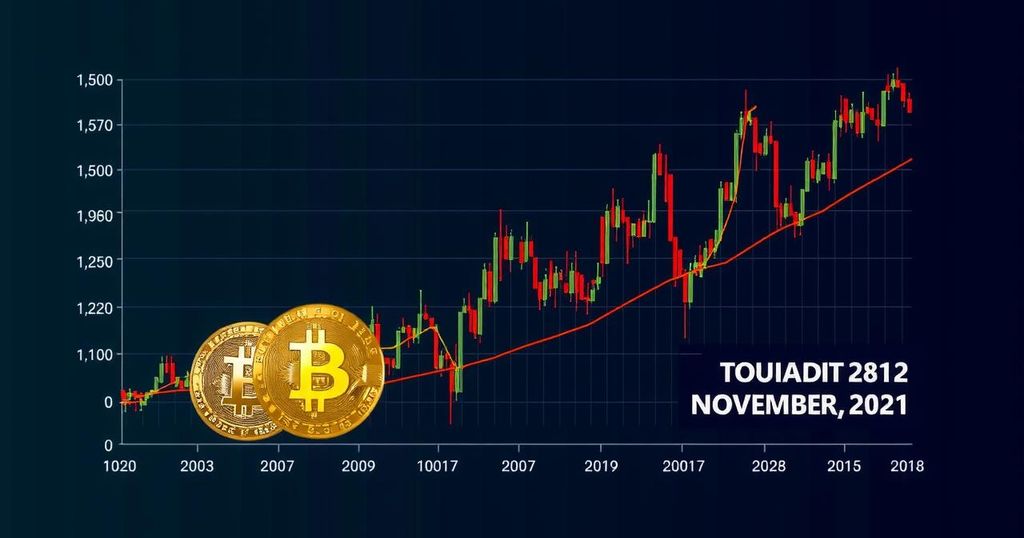Navigating the Paradox of Bitcoin Maximalism: Upholding Decentralization in an Institutional Age
Bitcoin was created in response to traditional financial system failures but faces increasing centralization risks from institutional players, which could undermine its original decentralization ethos. The paradox within the Bitcoin maximalist community highlights the conflict between Bitcoin’s intended purpose and growing dependence on traditional financial institutions. To reclaim its narrative, the community must prioritize education and participation in governance while fostering awareness of Bitcoin’s role as a tool for financial empowerment.
The emergence of Bitcoin was a direct response to the inadequacies and systemic failures observed in traditional financial systems, particularly during the Great Financial Crisis. Bitcoin was conceived as a decentralized and fair currency to combat government manipulation and the vested interests of financial institutions. However, there is an ongoing concern regarding the growing centralization within the Bitcoin ecosystem, as substantial holdings now rest in the hands of major players, such as governments, corporations, and large investors, with the top 15 holders controlling approximately 7.5% of the total Bitcoin supply. This situation has given rise to a paradox within the Bitcoin maximalist community: while they champion the ideals of Bitcoin, they simultaneously express dependence on the very institutions the currency was intended to circumvent. As financial institutions and governmental bodies tighten their grip on cryptocurrencies, including Bitcoin, concerns arise over the potential loss of Bitcoin’s foundational principles of decentralization and independence. Recent events, such as proposals by political figures to integrate Bitcoin into national reserves or institutional endorsement driving retail interest, underscore a troubling trend where economic aspirations overshadow the foundational philosophies of Bitcoin. Institutions such as MicroStrategy are amassing vast quantities of Bitcoin, contributing to its growing status as a traditional asset rather than a revolutionary currency for the people. Furthermore, close correlations between Bitcoin prices and traditional stock markets threaten to blur the lines between decentralized and centralized finance (Ce-DeFi), wherein the original ethos of financial freedom may be compromised. Despite the mounting challenges, it is crucial for Bitcoin proponents and the community at large to reaffirm their commitment to the original vision of Bitcoin as a people’s currency. Greater awareness is necessary to reject the narrative that Bitcoin is merely another financial asset to exploit. Initiatives that focus on education and decentralized governance, such as the OpenSats Education Initiative, must be prioritized to impart knowledge rather than mere profit-seeking objectives. Promoting decentralized governance must be a focal point in the Bitcoin community’s approach. Greater engagement in Bitcoin Improvement Proposals (BIPs) will empower individuals to influence the evolution of the Bitcoin protocol and its foundational principles. Social media platforms should be leveraged to propagate Bitcoin’s origins as a tool for financial empowerment, not just as a vehicle for gains. Such measures will not only help in reclaiming the decentralized narrative but will also motivate policymakers to foster regulations that safeguard Bitcoin from excessive institutional influence. Ultimately, while institutional involvement in Bitcoin may seem to bolster its legitimacy, it is essential to scrutinize the implications of such developments. A continued trajectory towards institutional control could lead to the erosion of Bitcoin’s self-sovereign aspect, transforming it from a revolutionary currency into a mechanism for the financial elite. Therefore, a proactive approach must be adopted to realign Bitcoin with its foundational principles before it succumbs to the forces it was designed to fight.
Bitcoin was introduced as a decentralized currency aimed at overcoming the challenges posed by traditional financial systems during the Great Financial Crisis. Its core principles of decentralization, freedom, and self-sovereignty are increasingly being tested as institutional players become more significant stakeholders in the Bitcoin market. This trend raises concerns about the potential loss of Bitcoin’s original purpose and its evolution into just another financial asset under the control of elites. The background underscores the necessity of understanding both the philosophical underpinnings of Bitcoin and the contemporary challenges it faces from major institutional involvement.
In conclusion, the Bitcoin community stands at a critical juncture where the adherence to the original ideals of decentralization and self-sovereignty is imperative. While institutional participation may lend credibility to Bitcoin, it also poses a significant risk of undermining its foundational values. To ensure Bitcoin remains a tool for the people, active involvement in educational initiatives and governance participation is essential. By instilling a collective sense of responsibility and reinforcing the decentralized narrative, the community can navigate the challenges posed by institutional influence and safeguard Bitcoin’s revolutionary potential.
Original Source: www.coindesk.com






Post Comment